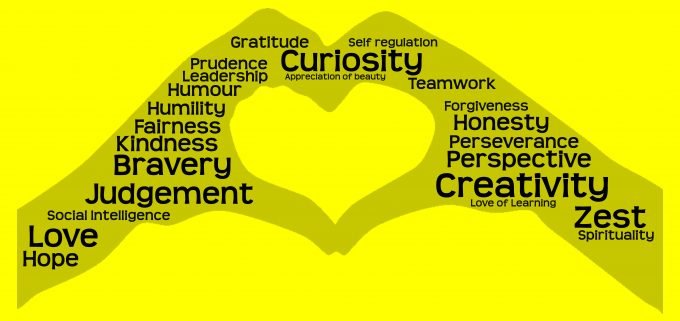Leveraging strengths: supporting teachers to flourish

Ask teachers to identify their own strengths and they probably have a better idea of their ‘gaps’ or weaknesses.
As educators, and this is perhaps true of New Zealanders in general, we have a culture of being humble. Talking about our strengths can make some of us feel quite uncomfortable; it’s not something we are used to.
When someone asks us about our strengths, they are asking what’s right with us. Knowing and discussing our strengths offers us a common positive language that can be used in our workplace. Positive psychology, the study of optimal human functioning, provides this language via twenty-four researched character strengths/virtues that appear to be universal across all cultures.
Character strengths are our capacities for thinking, feeling, volition (making and acting on decisions) and the way we behave. Essentially, they form part of who we are at our core. They are the positive traits of our personality and very different from the other types of strengths that we may have, such as talent, interests and skills. We all have these twenty-four character strengths in varying amounts. Our signature strengths are those we draw on most effortlessly. They are energising and essential to who we are.
To flourish is to experience high levels of wellbeing. Flourishing individuals typically have a general tendency towards experiencing positive emotions more frequently:
- They are engaged in the world around them;
- feel loved and supported by others;
- have meaning and purpose with regards to being involved in something greater than themselves;
- feel that they are growing personally, and are;
- developing mastery in aspects of their lives.
Essentially, to flourish is to feel good and function well in what are described as the five pillars of wellbeing: positive emotion, engagement, relationships, meaning and purpose and accomplishment.
Why knowing our strengths supports wellbeing
The Values In Action Character Strengths survey from the VIA Institute on Character is a great place to begin uncovering our personal character strengths. Google it to take part!
Using it brings clarity and focus to what helps us and our colleagues flourish.
In a study of nearly 10,000 New Zealand workers that examined indicators of flourishing, those who reported a higher awareness of their strengths were nine and a half times more likely to be flourishing than those with low strength awareness. Moreover, workers who reported using their strengths more often were 18 times more likely to be flourishing.
Having personally supported many school staff to collectively complete the survey, which surfaced both individual and collective strengths as an entire staff or community of learning, I saw that it inspired valuable discussion and insight for many teachers. Being able to share stories of when they were at their best provided great opportunities to connect with colleagues in meaningful ways. Allowing teachers to be seen and valued for who they are, and the unique qualities teachers brought to their roles. It also created an energy and motivation to consider what was right with the close relationships they had around them, and a way to intentionally shine the spotlight on others to both celebrate and appreciate them.
Research informs us that being able to use between four to six signature strengths in the workplace is linked with higher workplace satisfaction, meaning, and describing work as a “calling” in life. Our signature strengths are our top character strengths that we draw on most frequently.
Be mindful
In the ever-expanding body of research on strengths use, researchers have also discovered that underusing our strengths can impact our wellbeing more negatively than overusing them. For example, there is an increased likelihood of suffering social anxiety if we underuse our strengths of zest, humour and self-regulation and overuse our humility and social intelligence.
So, with this, it is really helpful to ask ourselves how much we are underusing our strengths; overusing, or using, our strengths in balance.
Four ways to leverage strengths and boost wellbeing
- Start with spotting the signature strengths you use daily in your work, and remember to express appreciation towards yourself for having that strength.
- Pick a signature strength and consciously practice it in a new way for a week. Then choose a new focus.
- Positive reminiscence. At the end of your day, reflect for a moment on the strengths you demonstrated. Writing them down can reinforce the awareness you are creating.
- Avoid underusing and overusing your strengths.







